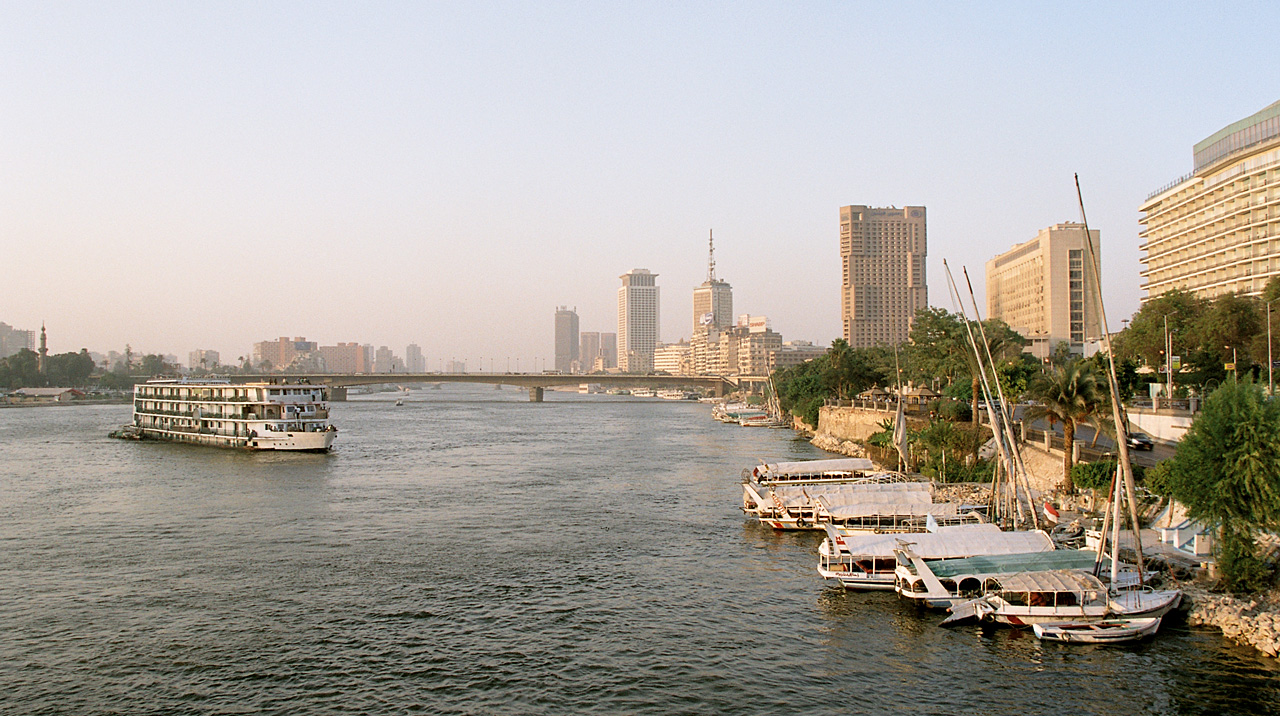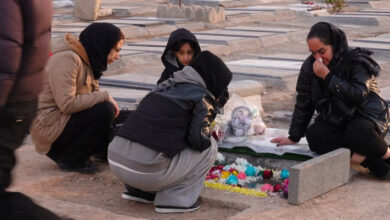At the outset, I will admit that my relationship with Anas el-Fekki is uneasy for understandable reasons. Nonetheless, I try my best not be unfairly harsh to him. Actually, no relationship exists between the two of us. I appreciate his congenial company, which is well regarded by my friends, as well as his intelligence. It is said that in one of the sessions of the higher committee of the so-called Arab Media Festival, which was responsible for proposing names of figures to be honored by the festival, prominent writer Mahfouz Abdel Rahman proposed, by slip of tongue, my name. His suggestion was met with silence that was only interrupted by the minister saying, "An excellent recommendation! Hamdi el-Konayessy does deserve to be honored." And so he was.
Regardless of whether my friend Hamdy el-Konayessy deserves to be honored, the quick wit of the minister is praiseworthy. The problem, however, is that his wittiness does not come to his rescue in major situations. Even when it does, such wittiness can’t make him into a proper minister of information.
I don’t how former Minister of Information Safwat el-Sherif fell into the mistake of stating, upon leaving office, that he was the last minister of information in the history of Egypt because that position has been abolished in more civilized countries. Still, Safwat el-Sherif remains, in fact, the last minister of information to make constructive contributions. He was the "mentor" who built the modern Egyptian media.
I’m not comparing el-Sherif with others who have filled the same position. Mamdouh el-Beltagy, for one, only occupied the position for a few months, though he takes all the credit for introducing el-Beit Beitak (Make Youself at Home), which is currently the main show on Egyptian television.
El-Beit Beitak seems to be el-Fekki’s most important concern as minister. The program’s team gets back to him on matters such as choosing the guests, adjusting the tone of the program, and performance on air.
Otherwise, Anas el-Fekki has only been involved in controversies of little importance, such as the broadcasting of football matches. He also gets involved in battles that he himself creates, as when he issued a warning to Al Hayat satellite channel for having provided real-time coverage of the Ayyat train crash without obtaining prior permission. So far, we haven’t seen any achievements from el-Fekki except the promotional campaign ahead of Ramadan which reassured viewers, "Nothing is exclusive, everything is on Egyptian television." But not even that achievement belongs to him. The idea came from the head of the Egyptian Radio and Television Union, Osama el-Sheikh, who is famous for doing wonders.
The fact that el-Fekki accompanies the president on foreign visits or sits behind him at conferences for unknown reasons doesn’t make him a minister. I’m saying "unknown reasons" because we never find him giving an official statement or meeting with journalists afterwards. Generally, he’s reluctant, disoriented and doesn’t think media professionals belong to him. Nor do they feel they belong to him.
El-Fekki is foreign to the profession, unlike all of Egypt’s other ministers. Perhaps he’s the only one whose previous experience as an agent for a foreign publishing company supposedly qualifies him for the position. Even if we use his accomplishments to evaluate his performance, we still won’t find anything that makes him worthy of the position. Two main criteria determine whether a minister of information is worthy of his position: providing a favorable environment for a fitting media apparatus, and skillfully defending Egypt’s policy locally and internationally.
El-Fekki failed in these two missions. He’s the first minister of information to remain close to silent when a political crisis arises. What’s more, when he does break the silence, as in the last assault on Gaza, his statements only tend to add insult to injury. Indeed, the Egyptian stance on Gaza would have been hard to defend, but a fine craftsman should at least try to make a silk purse out of a sow’s ear, but how could our minister do that if it is his profession to botch up things?
The stench of the minister’s failures really reached our noses during the recent football crisis. He orchestrated the process of charging Egyptians prior to the match against Algeria and led a state media campaign as though he was mobilizing forces for a battle. The pungent stench of this failure is still hanging in the air. After the match, he engaged in a rash drive for retaliation.
Private channels followed his trend, though not always willingly. However, they rectified their mistakes, even if it was a little late. They engaged in a public process of self-criticism, and one of the channels even interrogated one of its sports presenters. But Anas el-Fekki doesn’t understand the meaning of self-criticism. Under the pressure of the heated debate in the People’s Assembly, he was finally forced to announce the formation of a committee to evaluate the performance of state and private media after he had employed every means possible to stir up excitement over the match.
The media charged the masses in a demagogical manner. At times they used romantic slogans, such as "For the Love of Egypt," while in other instances they employed a Nazi-style phrases like "Egypt Over Everyone." There was also religious tinge that manifested itself in the Sufi-like supplications of the marchers to the stadium. Playing in the background were patriotic songs that commonly accompanied the major events in our modern history. That way, a match was turned into some national project and its players into symbols of national dignity whose victory would be glory to Egypt and loss an impossibility.
But the impossible happened. The team was defeated in Khartoum. The shock that ensued wasn’t only triggered by the result of the match, but also by the scenes that followed. The upper-class Egyptian spectators who were happy to appear on camera fled like frightened rats chased by Algerian hooligans who brandished knives and swords and hurled stones at their buses. This is the image of Egyptians that the media has fed the world: cowards.
The purpose of my article isn’t to look at the causes of those incidents. I said in a previous article that the authorities in Egypt failed spectacularly on the political level. This time I’m only speaking about the media. Theirs is another humiliating failure, professionally and politically. El-Fekki is the one responsible for such a failure, when he gave explicit orders, dropped hints, or turned a deaf ear; his silence was explained as a sign of approval.
Not only did he fail when the team he dispatched to Sudan failed to document the violence to support the Egyptian file submitted to FIFA, but also when he led a herd of idiots, especially the satellite channels which Emad Erian described as "shoe-throwing satellite channels," to cut the thin thread that connects Egyptians and Algerians.
Ebrahim el-Sayeh writes in Al-Dostour that one Egyptian newspaper depicted the President of Algeria as a dog, and the Algerian state as a prostitute with a train that carries the Egyptian flag ready to penetrate her body. Another newspaper depicted Hassan Shehata as a groom and the coach of Algeria a bride with a caption reading, "It’s your night!"
Other media weren’t any better. The Algerian people are Berbers who should be beaten with shoes, said the ignorant media, thinking that "Berber" was the equivalent of "barbarian." They are a retarded nation, said one z-list actress. Theirs is the "nation of a million bastards" or "nation of a million bullies" as another sports presenter described them on some satellite sports show. Their women are prostitutes. The prostitution network in Cairo is led by an Algerian and sluts in Europe are mostly Algerian, they said. In a snobbish tone, they even said it was we, Egyptians, who Arabized and taught those people before they were human beings.
Then came the hysterical calls to sever relations with Algeria, though those voices were never heard when Israel killed our prisoners of war, targeted our soldiers on the borders, or attacked Gaza. Today, Algeria is the enemy or Lucifer and Algerians in Egypt should be detained and prevented from leaving the country, and the country’s ambassador should be kicked out.
Amid these obscenities, political foolishness, and professional blunders, the minister of information remained silent. In fact, it was he who ignited the situation when he said that Algeria took an aggressive stand towards Egypt and threatened to sever cultural relations. It was el-Fekki who falsified the incident where a stupid Egyptian spectator threw a stone at the Algerian team’s bus, saying the aggressor may have been an Algerian spectator. The very same el-Fekki led the campaign against Sudan as well.
El-Fekki threatened the Sudanese government, saying he’d interfere if it didn’t protect the Egyptians. When the Sudanese did their utmost towards that end, superior orders were given to stop the media attack and two Egyptian ministers were dispatched to Sudan to contain the situation. It seems also that orders were issued recently to stop the criticism of Algeria after the "neo-media professionals," as Khaled el-Sergany described them, accomplished their mission and spoiled the bright history of relations between the two countries.
But another campaign, more threatening to Egypt’s status and national security, is still ongoing, despite numerous articles by intellectuals that call for listening to the voice of reason. It is a campaign that targets the Arab identity of Egypt and seeks to isolate the country, going against Egypt’s interests. Predictably, the over-excited media took a swipe at Nasser’s leadership and, surprisingly enough, it was a Saudi program broadcast from Egypt that took the lead in this regard.
We have been dragged into a losing battle by a mediocre Algerian newspaper, even as official Algerian media refrained from indulging. Egyptian media was scandalized everywhere when international and Arab media took a pro-Algeria stance.
For those reasons I call upon Anas el-Fekki to resign. He failed to persuade others of the Egyptian position, he didn’t meet even once with foreign magazine reporters in Cairo, he didn’t direct his media consultants and information desk to take action, he didn’t even hold the state news agency MENA accountable for describing FIFA as a despicable entity that hates Egypt.
I call upon Anas el-Fekki to resign because he failed to launch a news channel directed to the Arab world–I’m not even saying the international community–and because he failed to address the Maghreb countries, which he couldn’t do any better than insult. I call upon him to resign because he focused the attention of official television almost exclusively on eastern Arab countries. I call upon him to resign because he compromised the dignity of Egyptians when he meant to defend it.
I call upon him to resign because el-Fekki’s media doesn’t recognize fundamental professional standards, most important of which are adjusting the content and tweaking the rhythm in a way that arouses the enthusiasm of the masses, while at the same time taking into consideration possibilities of loss, and deters the opponent without causing humiliation to either side.
In his lost battle against Algeria, Anas el-Fekki destroyed whatever was left of Egypt’s leadership. Regardless of that battle, the minister of information restricted the freedoms of private satellite channels, prevented opposition leaders from appearing on the screen, censored representatives of the regime with whom he disagrees—the Egyptian ambassador to Sudan’s call was cut off on air–and even blocked Egyptian symbols, such as Heikal, Amr Khaled, and recently ElBaradei, from addressing the people on television.
It was el-Fekki who blocked satellite channels such as Al Hewar and Al Aalam simply because their policy doesn’t align with Egyptian policy, and warned the Lebanese channel Al Jadeed of meeting the same fate. He came up with the so-called Document on Satellite Channels, the purpose of which is to impose restrictions on news programs. He is currently in the process of preparing a bill that manages audio and visual media and censors the different broadcasting channels, including the internet, to tighten the government’s grip on the media.
It was el-Fekki who failed to set standards for work in the media and for holding violators responsible. It was he who established suspicious contacts with advertising agencies, opened the door to government commercials, and hung our dirty linen in public in scandalously bold programs that he chose to broadcast during Ramadan.
Those are the reasons why I call upon el-Fekki to resign. What angers me the most is that the reasons I stated for him to resign are the very same reasons why he will stay!
Translated from the Arabic Edition.




